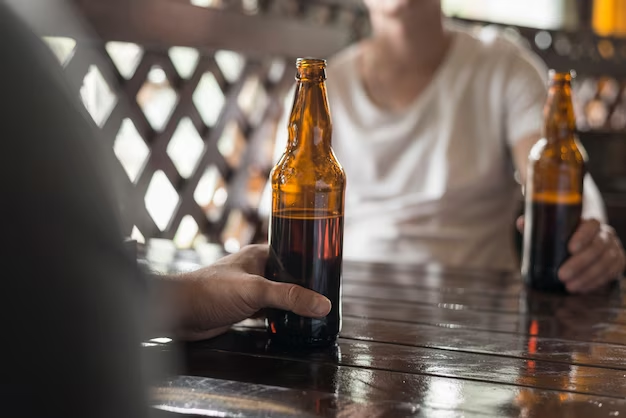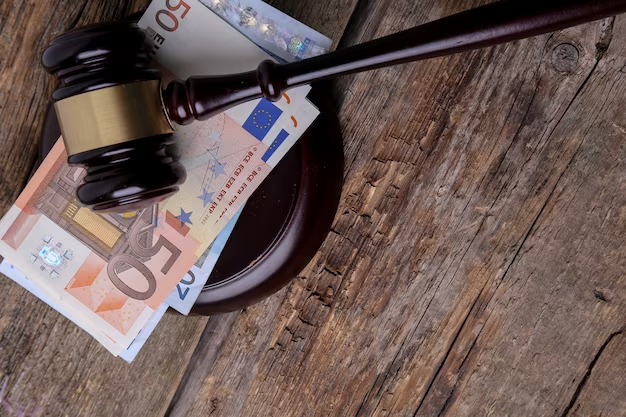Aloha to the beautiful state of Hawaii! Known for its breathtaking beaches and vibrant culture, Hawaii also has specific laws that govern the use of alcohol in public spaces. One such law that visitors and locals alike should be familiar with is the Hawaii open container law. This article delves into the intricacies of the Hawaii open container law, discussing its implications, the penalties for non-compliance, and addressing some frequently asked questions.
Understanding Hawaii Open Container Law

Hawaii’s open container law is a crucial piece of legislation designed to regulate the possession and consumption of alcoholic beverages in public areas. Its primary objectives are to maintain public order, ensure safety, and enhance the overall experience of residents and visitors throughout the state. To gain a comprehensive understanding of Hawaii’s open container law, let’s delve into the details:
The Basics of the Law
An open container, as defined by Hawaii law, encompasses any bottle, can, or other receptacles containing alcoholic beverages that meet one of the following criteria:
- The container is open, meaning it has no seal or cap.
- The seal or cap has been broken.
- The contents of the container have been partially consumed or removed.
This definition covers a wide range of containers, from open bottles of beer to partially consumed cans of alcoholic beverages.
Prohibited Areas
The Hawaii open container law explicitly prohibits the possession of open containers in specific public areas. These areas include but are not limited to:
- Streets and roadways
- Sidewalks and pedestrian walkways
- Beaches and coastal areas
- Parks and recreational areas
- Vehicles on public roads
It’s essential to be aware of these restricted areas to avoid potential legal consequences.
Exceptions
While the open container law in Hawaii is stringent, there are exceptions that permit the possession of open containers in certain situations. These exceptions include:
- Designated Picnic Areas: Open containers may be allowed in areas specifically designated for picnicking and alcohol consumption, provided that the area is authorized for such activities.
- Licensed Premises: Alcoholic beverage consumption is permitted within establishments and premises that hold valid licenses for the sale of alcohol. It’s crucial to adhere to the rules and regulations established by these licensed establishments.
Understanding these exceptions is vital for those looking to enjoy alcoholic beverages responsibly in Hawaii.
Penalties for Violating the Law

Hawaii takes its open container law seriously, and violations can result in various penalties, depending on the nature and severity of the offense. Common penalties for violating the Hawaii open container law include:
- Fines: Monetary fines are the most prevalent penalties imposed for open container violations. The specific amount of the fine can vary based on factors such as the nature of the violation and whether it is a repeat offense. It’s crucial to note that these fines can add up significantly, making compliance with the law the most cost-effective option.
- Community Service: In certain cases, individuals found in violation of the open container law may be required to perform community service as part of their penalty. This serves as an additional deterrent to discourage unlawful possession or consumption of alcoholic beverages in public areas.
- Legal Consequences: Repeated violations of the Hawaii open container law can lead to more severe legal consequences. These may include potential jail time, especially for individuals with a history of violations. It is essential to take this law seriously to avoid escalating legal issues.
Navigating Through the Penalties
Understanding the penalties associated with Hawaii’s open container law is essential for residents and visitors alike. This will provide you a detailed information on what you can expect if you find yourself in violation of this law. Additionally, we’ll explore tips on how to stay compliant to avoid these penalties.
Penalties for Violation
Hawaii’s open container law is in place to regulate the consumption of alcohol in public spaces. It is crucial to be aware of the consequences if you violate this law:
| Violation | Penalty |
| First Offense | Small fine, usually not exceeding $100 |
| Repeat Offense | Higher fines, potential for community service or jail time |
Let’s delve deeper into each of these penalties:
- First Offense: If you are caught with an open container of alcohol in public for the first time, you can expect a relatively lenient penalty. Typically, you will be fined, and this fine is generally not more than $100. While this may seem like a minor inconvenience, it’s essential to remember that repeated violations can lead to more severe consequences.
- Repeat Offense: If you commit the same offense multiple times, the penalties become more substantial. You could face higher fines than your first offense. In some cases, you may even be sentenced to community service or jail time. The severity of these consequences often depends on the number of prior violations and the specific circumstances of your case.
How to Stay Compliant
To avoid the penalties associated with Hawaii’s open container law and ensure you remain in compliance, follow these proactive tips:
- Know the Areas: Familiarize yourself with the areas where open containers of alcohol are prohibited. These areas typically include public parks, beaches, sidewalks, and other public spaces. Pay attention to local ordinances, which may further specify restricted zones.
- Look for Signage: Many public areas have signs indicating whether alcohol consumption is allowed. These signs are usually prominently displayed, making it easy for you to identify areas where you can and cannot have an open container of alcohol. Ignoring such signage can lead to penalties.
- Ask if Unsure: When in doubt, seek guidance from local authorities or establishment owners. If you are uncertain about whether you can have an open container in a particular area, it’s best to ask for clarification. Law enforcement officers or business proprietors can provide you with the necessary information to stay compliant.
Impact on Tourism
Tourism is undeniably a cornerstone of Hawaii’s economy, contributing substantially to its revenue and providing countless job opportunities. The state’s breathtaking landscapes, rich culture, and warm hospitality attract millions of visitors each year. However, the Hawaii open container law has a profound impact on the tourism industry, influencing the perception of the state as a family-friendly destination. Let’s explore the significance of this law in the context of Hawaii’s tourism and provide insights into how tourists can navigate it to ensure a trouble-free visit.
- Economic Significance: Tourism is a major economic driver for Hawaii, contributing significantly to the state’s GDP. Tourists spend money on accommodations, dining, activities, and souvenirs, directly benefiting local businesses and communities.
- Family-Friendly Image: Hawaii has long marketed itself as a family-friendly destination, emphasizing its natural beauty and welcoming atmosphere. This image is crucial for attracting families and promoting repeat visits.
- Open Container Law: The Hawaii open container law restricts the consumption of alcohol in public places, reinforcing the state’s commitment to maintaining a safe and family-oriented environment.
Impact on Tourism
The Hawaii open container law’s impact on tourism can be observed through several key aspects:
- Attracting Families: Families with children are a significant tourist demographic for Hawaii. The open container law helps create an environment where parents feel comfortable bringing their kids, knowing they won’t encounter public intoxication.
- Cultural Preservation: Hawaii’s unique culture and traditions are a major draw for tourists. The open container law contributes to preserving the cultural integrity of the islands by discouraging unruly behavior in public spaces.
- Safety and Public Perception: Tourists prioritize safety when choosing a destination. A strict open container law can enhance the perception of Hawaii as a secure place to visit, further boosting its appeal.
Navigating the Open Container Law
To ensure a seamless and enjoyable visit to Hawaii while adhering to the open container law, tourists are advised to:
- Educate Themselves: Familiarize yourself with the details of the open container law, understanding where and when alcohol consumption is allowed and prohibited.
- Respect Local Norms: Hawaii places great importance on respecting local customs and values. Be mindful of the local culture and behave respectfully in public spaces.
- Ask for Guidance: If uncertain about the law or its application in a particular area, do not hesitate to ask local authorities, law enforcement, or establishment owners for clarification.
- Choose Suitable Locations: When planning activities involving alcohol, opt for venues that hold the necessary permits and are compliant with the law.
Conclusion
The Hawaii open container law is an essential aspect of the state’s efforts to maintain public safety and order. Whether you’re a visitor or a resident, understanding and complying with these regulations will ensure a pleasant and lawful experience in Hawaii’s paradisiacal setting. Remember to always drink responsibly and be aware of your surroundings, keeping the spirit of Aloha in mind!
FAQ
Can I drink alcohol on Hawaii’s beaches?
Generally, no. Most public beaches fall under the Hawaii open container law, prohibiting open containers of alcohol.
Are there any designated areas where I can consume alcohol outdoors in Hawaii?
Yes, certain designated areas like licensed premises or private resorts may allow alcohol consumption. Always check local regulations.
What should I do if I see someone violating the Hawaii open container law?
If you witness a violation, it’s best to report it to local authorities or law enforcement.
Does the Hawaii open container law apply to all types of alcoholic beverages?
Yes, the law applies to all alcoholic beverages, including beer, wine, and spirits.
Can I have an unopened bottle of alcohol in my car?
Yes, unopened bottles of alcohol are permitted in vehicles, provided they are stored in areas like the trunk where they are not readily accessible.
